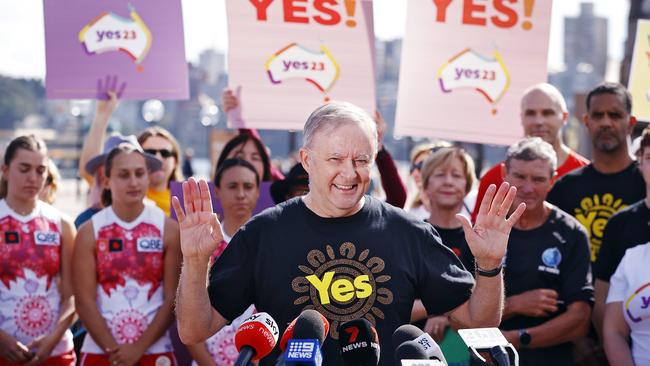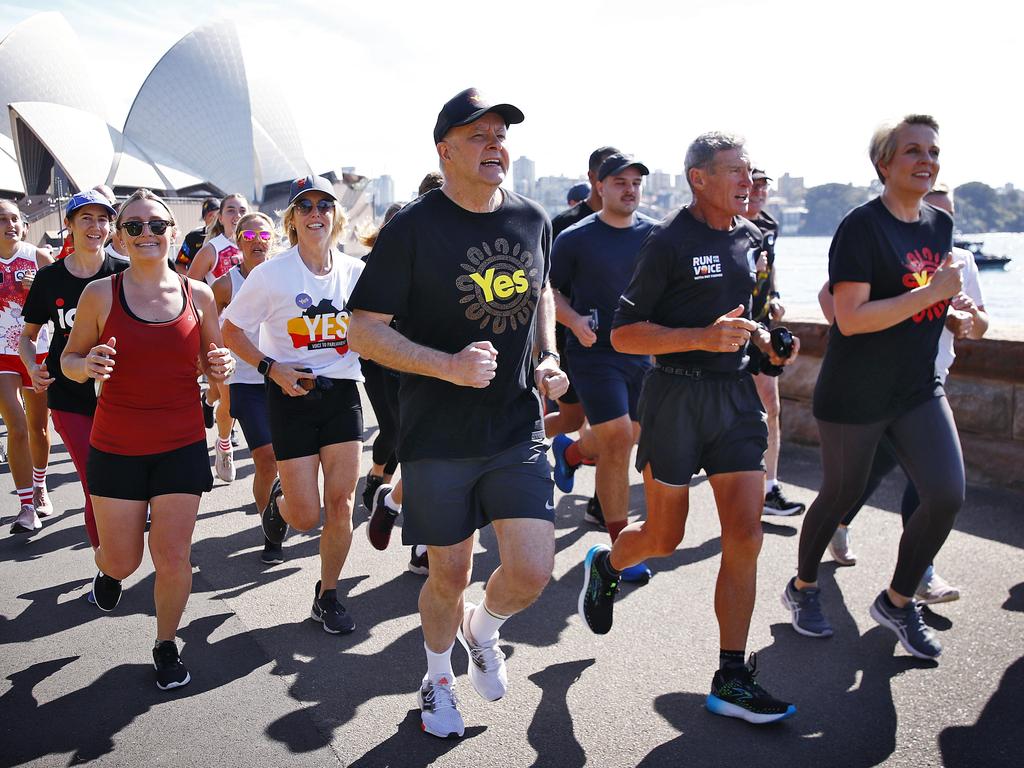The No campaign against an Indigenous voice to parliament concedes a six-week campaign will be challenging
The No camp says a six-week campaign – assuming the referendum is held on October 14 – will be challenging.

The No campaign has hit out at Anthony Albanese for overseeing a six-week referendum campaign on an Indigenous voice to parliament, labelling it “an absolute slap in the face” to Australians struggling with cost-of-living pressures.
The Prime Minister has confirmed he will announce the date for the referendum next Wednesday in Adelaide, kickstarting a likely 46-day campaign – if the referendum is held on October 14 – from a crucial swing state that both camps are eyeing off.
A No campaign spokesman told The Australian their strategy would not change once the referendum campaign officially began, which was to communicate to battleground state voters it was a “terrible idea to divide the country with this proposal”.
Opponents to the voice are targeting South Australia, Tasmania, Western Australia and Queensland as the No camp only needs a majority in three states to defeat the referendum.
“The campaign is a challenge and six weeks is a long time,” the No campaign spokesman said.
“It’s obvious to us that the PM has chosen a six-week campaign as it suits both the Yes campaign and the government to spend the $100m we think they have set aside for advertising during the referendum. It is an absolute slap in the face to every Australian that while they are worried about rent and the cost of petrol, the PM will be using their money on this campaign.”
Yes23 has disputed donations will amount to anything close to $100m.
The Prime Minister’s spokeswoman rejected the No camp’s attack, saying the government’s top priority was cost-of-living relief.
She pointed to seven cost-of-living relief measures, including cheaper childcare for 1.2 million families and a plan to build 1.2 million homes this decade with the states and territories.
Government sources said the No campaign’s suggestion Yes23 would receive $100m in donations was “another invented distraction” by a group that wanted to talk about everything but the referendum question before Australians.
October 14 is the preferred date of the government and Yes campaign for the poll but it could also be held on October 7.
Leading Yes campaigner Thomas Mayo said over a thousand volunteers were joining up every four days and supporters were confident they could win in every state.
Writing in The Australian on Thursday, Mark Butler said the voice was a once-in-a-generation opportunity to break the cycle of poor health for Aboriginal Australians.
Mr Butler said the voice would tackle endemic trachoma in Indigenous communities, improving not just healthcare but housing, basic amenities and environmental conditions. Trachoma is a contagious bacterial eye infection primarily found in regional and remote Indigenous communities. “We need health, housing bodies and the environment department working together, listening to the voice of First Nations people to work towards preventing and eliminating trachoma,” Mr Butler writes.
“We all care deeply about Closing the Gap, but we need a new approach. Just like a good doctor listens carefully to their patients, a voice to parliament involves listening to … Aboriginal and Torres Strait Island people about better ways to make a real difference to their healthcare,” he wrote.








To join the conversation, please log in. Don't have an account? Register
Join the conversation, you are commenting as Logout